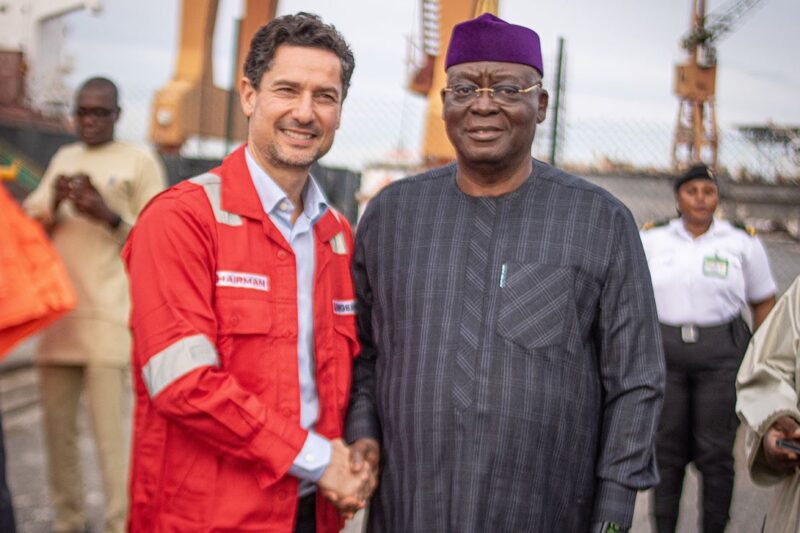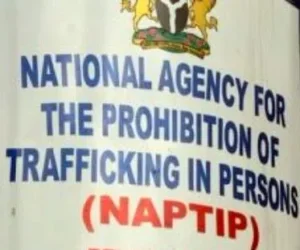1
Mr. Maher Jarmakani, Executive Chairman, Snake Island Integrated Free Zone (SIIFZ)(left) and Senator Dayo Adeyeye, Chairman, Governing Board of Nigerian Ports Authority (NPA) during a recent familiarisation tour of Snake Island Port.
The Snake Island Port has reaffirmed its commitment to port infrastructure development and economic advancement.
This assurance was given during a familiarisation tour of port terminals in Lagos habour by the governing board of the Nigerian Ports Authority (NPA).
Speaking during the tour, Executive Chairman of Snake Island Integrated Free Zone (SIIFZ), Maher Jarmakani said: “This visit indicates the critical partnership between private entities and government agencies in driving regulatory compliance and operational excellence. We appreciate the Authority’s continued support for Snake Island Port, as we develop world-class infrastructure which strengthens economic growth in the region and further connects Africa with global trade.”
Also, in his remark, the Chairman of the NPA governing board, Sen. Dayo Adeyeye said: “We commend the management of Nigerdock and SIIFZ for their rigorous efforts in developing the terminals through strategic partnerships with global industry players and investment in key infrastructure. This development is crucial for economic advancement, and we are delighted to provide the required support.”
Recall that in November 2024, Nigerdock and the NPA completed an agreement for the development of Snake Island Port, a green port comprising three terminals.
The port is sponsored by Nigerdock and SIIFZ as a Public Private Partnership (PPP), with the Federal Government.
Snake Island Port is located within Lagos Harbour. It is a modern, integrated maritime hub with three terminals providing efficient access to West African and international trade routes.
The port combines multi-terminal flexibility with Free Zone advantages to support cargo movement. While the Nigerian Ports Authority (NPA) is a federal government agency that manages and operates Nigeria’s seaports.
Its mandate includes the development, ownership, and operation of ports, ensuring safe and navigable channels, providing cargo handling services, and maintaining port infrastructure.








